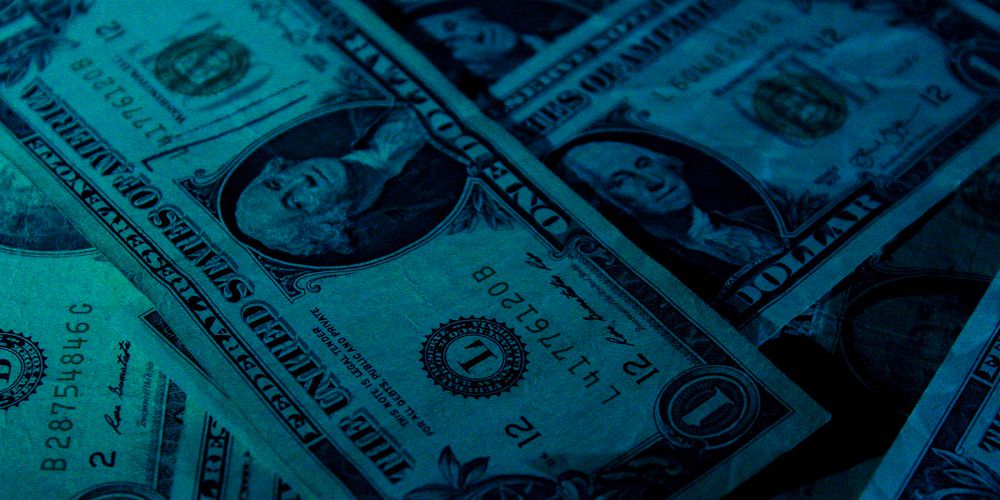I have very complicated feelings about fandom, as you can probably tell by how often I write about it. I have my roots in it as a writer, and to this venerable altar of pop culture I owe my professional career.
Even outside of my nine-to-five job, fandom has helped me through some extremely tough (and personal) choices.
So I can't knock it without acknowledging this connection, and despite my gripes I usually believe that it's a good, positive influence for a lot of people.
However, fandom was specifically built upon the idea of an equal playing field where all fans can come together. It's an ideological, utopian model where we can allegedly express our support through creativity, no matter what form that creativity takes.
I personally love this idea of a communal identity, and while it doesn't always work in practice, I try my best to emulate it.
But there's a class difference in fandom that we need to talk about: specifically, the idea that money can get you things, and some people don't have access to that.
Everything Has a Price Point
It's no surprise that some of the biggest fandoms have the lowest barrier for entry. This is not a physical barrier we're talking about (although those do exist), so much as these fandoms are cheap or easy to access, facilitated by social media sites such as YouTube.
I mean, you can be a Star Wars fan so long as you've paid the nominal fee to see the movies in the theaters. There is a direct correlation between the financial ease to these fandoms and their size.
This low barrier is not to say that these fandoms are of lesser quality, and this article is not intended to come across as a "money makes you better" statement. Money has absolutely no bearing on your moral standing, but it does affect how thoroughly you can enjoy your fandom.
In a culture that judges your devotion by way of performative consumption, even easy-to-access fandoms can quickly get expensive. Entry into the proverbial fairgrounds is cheap, but if you want to be a "real" fan (as is implied), then you need to shell out for the individual rides, which add up.
This is even more true if you engage in a fandom that has a high price point; fashion subcultures, for example, or tabletop gaming, which requires both time and money. Or, you know, K-pop:
"A lot of the time, K-pop acts put the tickets for sale only a week after announcing the tour. In some cases, the ticket prices aren't even announced until the day the sale goes live," explains Caitlin Kelley for MTV, when describing how devoted fans often struggle to participate due to a lack of cash flow. "Fans with less-than-convenient payout schedules might not have the time to save for a show that will sell out."
This phenomenon of shelling out high amounts of cash to participate in timed events—and having your ability to participate be stymied by your payday—is not exclusive to K-pop.
To return to the Star Wars example, you need to buy the movies in order to watch the content, bare minimum. If you want to "level up" and participate in the full fandom, you'll need the physical books that tie into the series as well. You'll need posters, and lightsabers.
This doesn't even begin to cover the cost of going to Star Wars Celebration: the penultimate experience for any diehard fan and something that Star Wars adherents often spend thousands of dollars on.
If you're not rolling in dough, budgeting for Celebration is made all the more difficult by the fact that the convention often changes cities. Shortly after Star Wars Celebration Chicago (the name reflects which city it was held in), many fans were financially pressed.
With little warning, tickets for Star Wars Celebration Anaheim began to drop. In short order the event sold out, preventing fans who did not have cash liquidity from throwing their hat in the ring for the "full experience." The daily tickets soon began to disappear as well:
It's something that many of us fans were unhappy about, myself included:
The Curse of FOMO in Fandom
Once you get started in a fandom—and you see how deep that culture can go—there's an inherent sense of missing out if you're not involved in every little aspect:
"Finding a greater sense of purpose and developing the belief that you are deeply cared for by others creates a willingness to endure's life's challenges," says Brianna Wiest when describing the positive impact of fandom for Teen Vogue. "[...] groups of people with whom you share common interests is a starting point. It's not surprising that so many people are drawn to fandoms for that reason alone: it creates a common ground in an otherwise divisive and disconnected world."
This is a great and enduring element of fandom dynamics that I will forever champion. It plays directly into the reasons why it personally helped me through some very tough times.
But when you get a taste of this creative commonality and it's suddenly taken away from you, it can be devastating, especially if that split is due to money.
Financial despair is one of the most common challenges life will throw at us. When you see it pop up in fandom, then this communal experience will have an opposite, hugely detrimental effect on your health.
You'll feel guilty for not participating. You'll feel self-conscious for being poor. You may develop a resentment towards your fellow fans who can do these things that you want to do, but can't: as an insider looking in from the outside, stuck between everyday life and this subculture you yearn for.
It's not a healthy situation for anyone, and FOMO (a fear of missing out) can be a curse.
The Importance of Empathy
The mental health of our fellow fans and how it correlates to money is something we should ponder on in depth.
This is especially true since the roots of many nerdy subcultures stem from people feeling left out from "mainstream" activities that were controlled by monetary value, such as horseback riding or owning designer goods.
While fandom has gone mainstream (you can't argue that it hasn't, what with mega blockbusters like Avengers: Endgame), you can definitely make a case that we are replicating past forms of exclusion that are antithetical to it.
In a fascinating article for Polygon, Patricia Hernandez broke down the relatively new phenomenon of "default": a derogatory term by Fortnite players to indicate another player's lack of worth:
As Fortnite has shifted into a hangout spot, the messiness of social hierarchies has followed. [...] Fortnite matches can only have a single winner (or squad), which means that the average person can't stand out this way. Instead, players earn prestige with other fans based on their character's look.
— Patricia Hernandez, Polygon
This classist idea—that being unable to purchase the best "clothes" makes you unworthy—is a problem that has followed us into the digital realm of fandom. It's only going to get worse.
So how do we solve it? Well, for one, it's important to understand that there are no easy solutions. Even if we were to make all the concerts and games and items within games dirt cheap—or stick to nothing but fanfiction—the creators who make this content still need to make a living. This is how they pay their bills.
The issue of "class" is bigger than fandom, but perhaps a little consideration for our fellow fans (and their financial strain) might go a long way. Maybe there's a way we can be more mindful of our community's general pain points, and try to come up with solutions that keep the equitable spirit of fandom thriving.
Things like local meetups instead of large conventions would help, or asking about people's general budget ahead of shared activities so no one is worried that they can't participate in full.
\Heck, it can be as simple as requesting your local library stock up on the books associated with your fandom (in the case of Star Wars) so everyone can get a slice.
Let's just not make fandom a microcosm of the outside world, prejudices and all. People come into these communities to escape the fear of monthly bills and messy social hierarchies, anyways. They don't want to have to worry about a second version of this in the digital world, too.



